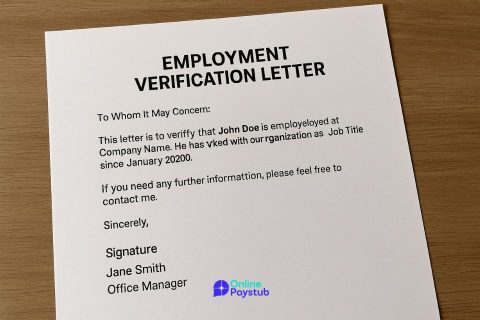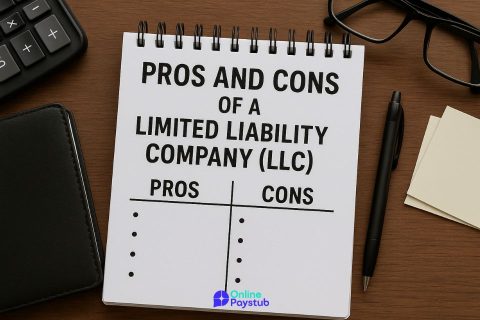Starting a small business comes with many responsibilities and one of the most important is understanding how taxes work.
Taxes can feel overwhelming at first, but with a clear grasp of your obligations, you can stay compliant, save money, and avoid penalties.
This guide covers everything beginners need to know about small business taxes in 2025.
Understanding How Small Business Taxes Work
Small businesses are subject to several types of taxes depending on their business structure, location, and income. The main taxes you need to be aware of include:
- Federal Income Taxes: Based on your business’s net profit.
- Self-Employment Taxes: Covers Social Security and Medicare contributions.
- State and Local Taxes: Vary depending on your business’s physical location.
- Employment Taxes: If you have employees, you must handle payroll tax withholdings.
- Sales Taxes: If you sell taxable goods or services, you must collect and remit sales tax.
Understanding which taxes apply to your business is the first step toward proper compliance.
The Key Differences Between Federal and State Taxes for Businesses
Federal and state taxes often overlap, but they are managed separately:
- Federal Taxes: Paid to the IRS. Include income taxes, self-employment taxes, and employment taxes.
- State Taxes: Paid to your state’s revenue department. May include state income tax, franchise taxes, or sales tax.
Each state has its own tax rules. Some states (like Texas and Florida) don’t impose an income tax, while others (like California and New York) have higher business tax rates.
Make sure you understand both federal and state obligations for your business.
Small Business Taxes for Beginners: Where to Start
If you’re new to business taxes, here’s how to get started:
- Choose Your Business Structure: (e.g., sole proprietorship, LLC, corporation) this determines your tax filing requirements.
- Apply for an EIN: Your Employer Identification Number is essential for tax filings.
- Open a Business Bank Account: Keep personal and business finances separate.
- Track All Income and Expenses: Good bookkeeping is crucial for accurate tax reporting.
- Understand Your Filing Deadlines: Federal taxes are typically due by April 15, but estimated payments may be due quarterly.
Organizing early prevents headaches later.
What Is an EIN Number and Why Does Your Business Need One?
An EIN (Employer Identification Number) is a unique nine-digit number assigned by the IRS to identify your business for tax purposes.
You need an EIN if:
- You have employees.
- Your business operates as a corporation or partnership.
- You file employment, excise, or alcohol, tobacco, and firearms taxes.
Even single-member LLCs and sole proprietors benefit from having an EIN, as it separates business identity from personal identity and improves credibility.
You can apply for an EIN quickly and free of charge through the IRS website.
How Is Sales Tax Collected and Reported by Small Businesses?
If you sell goods or certain services, you may be required to collect sales tax from customers.
Here’s how the process typically works:
- Register for a Sales Tax Permit: Apply through your state’s Department of Revenue.
- Collect Sales Tax: Add the appropriate tax rate to each taxable transaction.
- Keep Records: Maintain detailed sales and tax collection records.
- File Sales Tax Returns: Submit collected taxes to the state according to your reporting schedule (monthly, quarterly, or annually).
Sales tax rules vary significantly by state, so check your local requirements.
Collecting Sales Tax: Rules Every Business Owner Should Know
Key points for collecting sales tax:
- Know Your Nexus: If you have a physical or economic presence in a state, you must collect sales tax there.
- Correct Rates Matter: Rates can vary by city, county, and state.
- Track Exempt Sales: Some customers (like nonprofits) may be exempt from sales tax documentation is required.
- Timely Remittance: Failing to pay collected sales tax on time can lead to serious penalties.
Understanding and complying with sales tax obligations protects your business from costly fines.
Filing Your First Business Tax Return: Step-by-Step Overview
Filing your first business tax return involves:
- Gather All Financial Records: Income, expenses, payroll reports, bank statements.
- Complete the Appropriate Forms:
- Sole proprietors use Schedule C with Form 1040.
- Partnerships file Form 1065.
- Corporations file Form 1120 or 1120-S.
- Sole proprietors use Schedule C with Form 1040.
- Deduct Eligible Business Expenses: Office supplies, travel, marketing, etc.
- Report All Income Accurately: Include all forms of revenue.
- File Electronically: The IRS encourages electronic filing for faster processing.
If you feel overwhelmed, consider hiring a tax professional.
Common Tax Forms Small Businesses Must Complete
Some common tax forms include:
- Form 1040 + Schedule C: Sole proprietors’ business income and expenses.
- Form 1065: Partnership income returns.
- Form 1120 or 1120-S: Corporation and S-corporation filings.
- Form 941: Quarterly payroll taxes.
- Form W-2 and W-3: Reporting employee wages and taxes.
- Form 1099-NEC: Reporting payments made to independent contractors.
Knowing which forms you need helps prevent last-minute filing stress.
Tax Deductions and Credits Small Business Owners Should Not Miss
Take advantage of deductions and credits to lower your taxable income:
- Home Office Deduction: If you use part of your home exclusively for business.
- Startup Costs: Deduct up to $5,000 in qualifying startup expenses.
- Health Insurance Premiums: For self-employed individuals.
- Vehicle Expenses: Mileage or actual costs if used for business.
- Section 179 Deduction: Immediate expensing of qualifying business equipment.
Tax credits like the Small Business Health Care Tax Credit can also offer valuable savings.
Managing Estimated Tax Payments for Small Businesses
If you expect to owe $1,000 or more in taxes, you must make estimated tax payments quarterly:
- Calculate Your Estimated Tax Liability: Based on projected income and deductions.
- Submit Payments on Time:
- April 15
- June 15
- September 15
- January 15 (following year)
- April 15
Use IRS Form 1040-ES to calculate and submit payments.
Missing these payments can result in underpayment penalties.
Avoiding Common Mistakes When Filing Small Business Taxes
Watch out for these common errors:
- Mixing Personal and Business Expenses: Keep finances separate.
- Missing Deadlines: Stay on top of quarterly and annual deadlines.
- Underreporting Income: Always report full revenue, including cash payments.
- Overlooking Deductions: Document all business-related expenses carefully.
- Not Seeking Professional Help: When in doubt, consult a tax advisor.
Avoiding these mistakes saves you money and reduces the risk of IRS audits.




No comments to show.